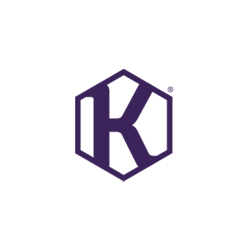 Here are all the emergency numbers in Germany you might need! When living in Germany, whether short-term or long-term, knowing the correct emergency numbers is crucial. Germany’s emergency services are reliable and well-coordinated, ensuring that help is available when you need it. Understanding how to contact these services and what to expect when you do can make a significant difference in an emergency situation.
Here are all the emergency numbers in Germany you might need! When living in Germany, whether short-term or long-term, knowing the correct emergency numbers is crucial. Germany’s emergency services are reliable and well-coordinated, ensuring that help is available when you need it. Understanding how to contact these services and what to expect when you do can make a significant difference in an emergency situation.
Key Emergency Numbers in Germany #
Germany has two main emergency numbers that everyone should know:
- 112: This is the primary emergency number for medical emergencies, fire services, and gas leaks. When you dial 112, you’re connected to all essential emergency services, including an ambulance, the fire department, and the police if necessary. The 112 number is also standardized across the European Union, so you can use it in any EU country, making it especially useful for travelers.
- 110: This number is specifically for the police. Use 110 if you need immediate police assistance but don’t require medical help or the fire department. This could be for situations like reporting a crime in progress or other urgent but non-life-threatening situations.
Both of these numbers are toll-free and available 24/7 from any phone, including mobile phones.
Do Emergency Operators in Germany Speak English? #
A common concern for non-German speakers is whether they’ll be understood if they need to contact emergency services. The good news is that many emergency operators, particularly those who answer the 112 line, speak English. Germany is a country that sees a lot of tourists and international residents, especially in major cities like Berlin, Munich, and Frankfurt. As a result, English is often used in emergency situations.
When you call, it’s a good practice to start by saying, “I speak English,” to ensure the operator knows to continue in English. While operators in urban areas are typically well-prepared to handle English-speaking callers, in more rural areas, English-speaking operators may be less common. However, they will still do their best to assist you.
What to Expect When You Call #
When you dial 112 or 110, be prepared to provide specific information quickly and clearly:
- Your Location: Provide your exact address, including the street name and number, or describe your location as precisely as possible. If you’re on a highway, mention the direction of travel and any nearby kilometer markers or exits.
- Type of Emergency: Clearly describe the nature of the emergency—whether it’s a medical issue, fire, gas leak, or if you need police assistance. Be as specific as possible to help the operator dispatch the appropriate services.
- Details of the Situation: Offer any additional information that might be important, such as the number of people involved, visible injuries, or if there are any immediate dangers (e.g., fire spreading, gas odor).
Additional Useful Numbers #
Aside from 112 and 110, there are other important numbers you might need:
- 116 117: This is the number for non-emergency medical services. If you’re feeling unwell but it’s not an emergency, this number connects you to an on-call doctor who can provide medical advice or direct you to the nearest healthcare facility.
- 19222: In some regions, this number is used for non-emergency medical assistance and to request an ambulance without calling the full emergency services.
Tips for Being Prepared #
To ensure you’re ready for any situation:
- Know Your Location: Always be aware of your address or your exact location, especially if you’re staying in temporary accommodation or traveling.
- Learn Basic German Phrases: While English is commonly spoken, knowing a few basic German emergency phrases can be helpful. For instance, “Hilfe!” means “Help!” and “Feuer!” means “Fire!”
- Keep Your Phone Charged: Ensure your phone is always charged and has enough credit if you’re using a prepaid plan. This will allow you to make emergency calls when needed.
For more information on living in Germany, including tips on safety and navigating everyday life, visit the KUMMUNI help desk at www.KUMMUNI.com/help or check out our blog at www.KUMMUNI.com/blog.

